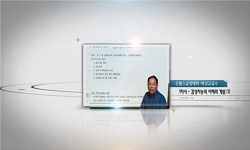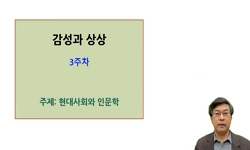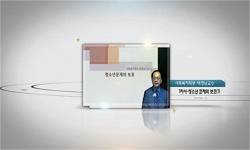The present study analyzes the ethical perspective of Jeong Yak-yong’s (1762~1836), a Korean Confucian during the latter half of the Joseon Dynasty (1392~1910), with a focus on the concept of virtue in his works. Its purpose lies in critically inter...
http://chineseinput.net/에서 pinyin(병음)방식으로 중국어를 변환할 수 있습니다.
변환된 중국어를 복사하여 사용하시면 됩니다.
- 中文 을 입력하시려면 zhongwen을 입력하시고 space를누르시면됩니다.
- 北京 을 입력하시려면 beijing을 입력하시고 space를 누르시면 됩니다.

정약용의 경학 저술에 나타난 ‘德’ 개념의 철학적 의미와 쟁점 : 현대 서양 덕 윤리학[virtue ethics]의 논쟁과 관련하여 = The Philosophical Meaning and Points of Contention of the Concept of Virtue in Jeong Yak-yong’s Works on Classical Confucian Learning: In Relation to Debates on Contemporary Western Virtue Ethics
한글로보기https://www.riss.kr/link?id=A104062381
-
저자
백민정 (가톨릭대학교)
- 발행기관
- 학술지명
- 권호사항
-
발행연도
2015
-
작성언어
Korean
-
주제어
Virtue ; virtue ethics ; moral motives ; moral emotions ; filial piety-brotherly devotion-benevolence ; loyalty-filial piety-fidelity ; rituals ; governance through rituals ; cultivation ; self-cultivation ; action guidance ; empathy ; sentimentalism ; situational ethics ; 德 ; 덕 윤리학 ; 도덕적 동기 ; 도덕감정 ; 효제자(孝弟慈) ; 충효열(忠孝烈) ; 예제(禮制) ; 예치(禮治) ; 함양(涵養) ; 자기수양 ; 행위지침성 ; 공감(empathy) ; 정감주의 ; 상황주의 윤리
-
KDC
051.000
-
등재정보
KCI등재
-
자료형태
학술저널
- 발행기관 URL
-
수록면
141-180(40쪽)
-
KCI 피인용횟수
1
- 제공처
- 소장기관
-
0
상세조회 -
0
다운로드
부가정보
다국어 초록 (Multilingual Abstract)
Of course, Confucians developed a position different from that of Western philosophers in the ultimate goal (governing the nation and peacefully ruling over the world) aimed at by the gentleman (moral agent), or the ideal personality, and in the methods for such self-cultivation of human nature. Nevertheless, Western virtue ethicists and Confucians alike focused on the issue of developing human character in a desirable manner and thereby constructing intrinsic motivation, the source of moral actions. Precisely because of this, virtue ethics is criticized in Western society today for failing to explicate fully the issue of the justification, universality, and applicability of moral rules. Similarly, Confucians’ ethical perspective is being debated for its moral indeterminacy and absence of action guidance. In other words, because both virtue ethics and Confucian ethics constitute situational ethics and moral intuitionism, where moral agents’ subjective judgment is relied on according to the situation, what befits contemporary society is rule-oriented public ethics, which only presents the minimal obligatory rules.
The inevitable arbitrariness of the ethical judgment of the gentleman, or the ideal moral agent, is illustrated well by Jeong Yak-yong’s works on classical Confucian learning, which explicate the strict and detailed system of governance through rituals established in Korean society during the Joseon Dynasty. Through the process whereby family rituals, royal family rituals, and state rituals were established and newly revised, he showed how rituals, which could be seen as the moral rules of Confucian societies, had a decisive effect on the formation and education of virtuous character. In particular, in consideration of the fact that most clans independently drew up family rituals tailored to their characteristics and needs during the latter half of the Joseon Dynasty, it becomes clear why contemporary Korean Confucians focused on the issue of forming moral character and performing rituals, or of mediacy between moral emotions as the motives and moral actions as a means of their expression. Through such point of contention, it is possible to understand the ways in which Confucians approached the issue of moral norms or action guidance.
The present study analyzes the ethical perspective of Jeong Yak-yong’s (1762~1836), a Korean Confucian during the latter half of the Joseon Dynasty (1392~1910), with a focus on the concept of virtue in his works. Its purpose lies in critically interpreting the characteristics, meaning, and problems of the ethical perspective espoused by Confucian scholar Jeong Yak-yong’s through a comparison with the context of virtue ethics, which is an object of debate among Western philosophers today. The virtue ethics that is being problematized in the West originates from the Aristotelian philosophy of ancient Greece. An English translation of the Greek word arete, the concept of virtue meant the excellence of human character for realizing the highest purpose (highest good = happiness (eudaimonia)) in the Western tradition. In other words, the focus was not on specific actions but on the issue of forming virtuous character, which would enable one to act morally in countless circumstances. Confucians in East Asia, too, devoted their attention not to particular moral rules but to the formation of virtuous personality based on good nature.
Of course, Confucians developed a position different from that of Western philosophers in the ultimate goal (governing the nation and peacefully ruling over the world) aimed at by the gentleman (moral agent), or the ideal personality, and in the methods for such self-cultivation of human nature. Nevertheless, Western virtue ethicists and Confucians alike focused on the issue of developing human character in a desirable manner and thereby constructing intrinsic motivation, the source of moral actions. Precisely because of this, virtue ethics is criticized in Western society today for failing to explicate fully the issue of the justification, universality, and applicability of moral rules. Similarly, Confucians’ ethical perspective is being debated for its moral indeterminacy and absence of action guidance. In other words, because both virtue ethics and Confucian ethics constitute situational ethics and moral intuitionism, where moral agents’ subjective judgment is relied on according to the situation, what befits contemporary society is rule-oriented public ethics, which only presents the minimal obligatory rules.
The inevitable arbitrariness of the ethical judgment of the gentleman, or the ideal moral agent, is illustrated well by Jeong Yak-yong’s works on classical Confucian learning, which explicate the strict and detailed system of governance through rituals established in Korean society during the Joseon Dynasty. Through the process whereby family rituals, royal family rituals, and state rituals were established and newly revised, he showed how rituals, which could be seen as the moral rules of Confucian societies, had a decisive effect on the formation and education of virtuous character. In particular, in consideration of the fact that most clans independently drew up family rituals tailored to their characteristics and needs during the latter half of the Joseon Dynasty, it becomes clear why contemporary Korean Confucians focused on the issue of forming moral character and performing rituals, or of mediacy between moral emotions as the motives and moral actions as a means of their expression. Through such point of contention, it is possible to understand the ways in which Confucians approached the issue of moral norms or action guidance.
국문 초록 (Abstract)
유학자들은 이상적 인격인 ‘君子’가 지향하는 최종목적(治國․平天下)과 그런 인격의 함양방법에 있어 서구 철학자들과는 상이한 입장을 견지했다. 하지만 인간의 성품을 바람직하게 계발함으로써 도덕적 행위를 낳는 내적 동기를 구성하는 문제에 주력했던 점에서 서양 덕 윤리학자들과 유학자들은 공통점을 갖는다. 나아가 이런 유사점 때문에 오늘날 덕 윤리학이 서양사회에서 도덕규칙의 정당성(justification), 보편성(universality), 적용가능성(applicability) 문제를 제대로 해명하지 못한다고 비판받는 것처럼, 유학자들의 윤리관도 마찬가지의 도덕적 미결정성(moral indeterminancy)과 행위지침성(action guidance) 부재 논란에 시달리고 있다. 덕 윤리와 유교 윤리 모두 상황윤리(situational ethics)이며 사태에 따라 도덕 행위자의 주관적 판단에 의존하는 도덕적 직관주의(moral intuitionism)이기 때문에 현대사회에 좀 더 어울리는 것은 최소한의 의무규칙만 제시하는 규칙지향적인[rule- oriented] 공공(public) 윤리라는 말이다.
이상적 도덕 행위자인 군자의 윤리적 판단이 자의적일 수 없었던 점은 조선사회의 엄격하고 세밀했던 ‘禮治’ 시스템을 설명해 놓은 정약용의 경학 저술들을 통해 잘 살펴볼 수 있다. 그는 가례(family rituals)와 왕실례(Royal family rituals), 국가례(state rituals) 등이 수립되고 새롭게 개정되는 과정을 통해서, 유교사회의 도덕규칙이라고 할 수 있는 예제들(rituals)이 어떻게 유덕한 인격의 형성과 교육에 결정적 영향을 미치는지 보여주었다. 특히 조선후기 대부분의 가문에서 자기 문중에 어울리는 가례를 자체적으로 작성했던 점을 고려하면, 조선 유학자들이 도덕적인 인격 형성과 예제 수행의 문제, 즉 내적 동기로서의 도덕감정과 이 감정의 표현수단인 도덕행위(moral performance) 사이의 매개(mediacy) 문제에 주목했던 이유를 알 수 있다. 바로 이 쟁점을 통해 도덕규범 혹은 도덕적 행위지침의 문제에 유학자들이 어떻게 접근했는지 이해할 수 있다.
이 글은 조선후기 유학자 정약용(丁若鏞:1762~1836)의 저술에 나타난 ‘德’ 개념을 중심으로 그의 윤리적 관점을 분석한 것이다. 오늘날 서양 철학자들 사이에서 논쟁이 되고 있는 덕 윤리학...
이 글은 조선후기 유학자 정약용(丁若鏞:1762~1836)의 저술에 나타난 ‘德’ 개념을 중심으로 그의 윤리적 관점을 분석한 것이다. 오늘날 서양 철학자들 사이에서 논쟁이 되고 있는 덕 윤리학의 문맥과 비교하면서, 유학자 정약용이 주장한 윤리관의 특징과 의미, 문제점을 비판적으로 독해하는 것이 이 글의 목적이다. 서양의 덕 윤리학은 고대 그리스의 아리스토텔레스 철학에서 유래한다. 덕(virtue)이란 개념은 그리스어 아레테(arete)를 영역한 것으로, 서구 전통에서는 최상의 목적[최고선=행복(eudaimonia)]을 실현하기 위한 인간 성품의 탁월성을 의미한다. 특정한 행위가 아니라 수많은 상황에서 도덕적으로 행위하게 해주는 유덕한(덕스러운) 인격의 형성 문제에 주목했던 것이다. 동양 유학자들도 구체적인 도덕규칙이 아니라 선한 본성에 기반한 유덕한 인격의 형성에 관심을 기울였다.
유학자들은 이상적 인격인 ‘君子’가 지향하는 최종목적(治國․平天下)과 그런 인격의 함양방법에 있어 서구 철학자들과는 상이한 입장을 견지했다. 하지만 인간의 성품을 바람직하게 계발함으로써 도덕적 행위를 낳는 내적 동기를 구성하는 문제에 주력했던 점에서 서양 덕 윤리학자들과 유학자들은 공통점을 갖는다. 나아가 이런 유사점 때문에 오늘날 덕 윤리학이 서양사회에서 도덕규칙의 정당성(justification), 보편성(universality), 적용가능성(applicability) 문제를 제대로 해명하지 못한다고 비판받는 것처럼, 유학자들의 윤리관도 마찬가지의 도덕적 미결정성(moral indeterminancy)과 행위지침성(action guidance) 부재 논란에 시달리고 있다. 덕 윤리와 유교 윤리 모두 상황윤리(situational ethics)이며 사태에 따라 도덕 행위자의 주관적 판단에 의존하는 도덕적 직관주의(moral intuitionism)이기 때문에 현대사회에 좀 더 어울리는 것은 최소한의 의무규칙만 제시하는 규칙지향적인[rule- oriented] 공공(public) 윤리라는 말이다.
이상적 도덕 행위자인 군자의 윤리적 판단이 자의적일 수 없었던 점은 조선사회의 엄격하고 세밀했던 ‘禮治’ 시스템을 설명해 놓은 정약용의 경학 저술들을 통해 잘 살펴볼 수 있다. 그는 가례(family rituals)와 왕실례(Royal family rituals), 국가례(state rituals) 등이 수립되고 새롭게 개정되는 과정을 통해서, 유교사회의 도덕규칙이라고 할 수 있는 예제들(rituals)이 어떻게 유덕한 인격의 형성과 교육에 결정적 영향을 미치는지 보여주었다. 특히 조선후기 대부분의 가문에서 자기 문중에 어울리는 가례를 자체적으로 작성했던 점을 고려하면, 조선 유학자들이 도덕적인 인격 형성과 예제 수행의 문제, 즉 내적 동기로서의 도덕감정과 이 감정의 표현수단인 도덕행위(moral performance) 사이의 매개(mediacy) 문제에 주목했던 이유를 알 수 있다. 바로 이 쟁점을 통해 도덕규범 혹은 도덕적 행위지침의 문제에 유학자들이 어떻게 접근했는지 이해할 수 있다.
참고문헌 (Reference)
1 丁若鏞, "論語古今註 1-5" 사암출판사 2010
2 이장희, "향원(鄕原)은 왜 덕(德)의 적(賊)인가?" 한국사회와철학연구회 (24) : 79-102, 2012
3 Matteo Ricci, "천주실의" 서울대출판부 1999
4 김호, "조선후기 ‘위핍률(威逼律)’의 적용과 다산 정약용의 대민관(對民觀)" 한국역사연구회 (87) : 541-575, 2013
5 심희기, "조선시대 지배층의 재판규범과 관습 - 흠흠신서와 목민심서를 소재로 한 검증 -" 법조협회 61 (61): 5-36, 2012
6 김호, "조선 후기 강상綱常의 강조와 다산 정약용의 정情•리理•법法 『흠흠신서欽欽新書』에 나타난 법과 도덕의 긴장" 재단법인다산학술문화재단 (20) : 7-39, 2012
7 김호, "정약용, 조선의 정의를 말하다" 책문 2014
8 이봉규, "인륜 : 쟁탈성 해소를 위한 유교적 구성" 태동고전연구소 31 : 109-153, 2013
9 데이비드 S. 니비슨, "유학의 갈림길" 철학과 현실사 2006
10 필립 J. 아이반호우, "유학, 우리 삶의 철학" 동아시아 2008
1 丁若鏞, "論語古今註 1-5" 사암출판사 2010
2 이장희, "향원(鄕原)은 왜 덕(德)의 적(賊)인가?" 한국사회와철학연구회 (24) : 79-102, 2012
3 Matteo Ricci, "천주실의" 서울대출판부 1999
4 김호, "조선후기 ‘위핍률(威逼律)’의 적용과 다산 정약용의 대민관(對民觀)" 한국역사연구회 (87) : 541-575, 2013
5 심희기, "조선시대 지배층의 재판규범과 관습 - 흠흠신서와 목민심서를 소재로 한 검증 -" 법조협회 61 (61): 5-36, 2012
6 김호, "조선 후기 강상綱常의 강조와 다산 정약용의 정情•리理•법法 『흠흠신서欽欽新書』에 나타난 법과 도덕의 긴장" 재단법인다산학술문화재단 (20) : 7-39, 2012
7 김호, "정약용, 조선의 정의를 말하다" 책문 2014
8 이봉규, "인륜 : 쟁탈성 해소를 위한 유교적 구성" 태동고전연구소 31 : 109-153, 2013
9 데이비드 S. 니비슨, "유학의 갈림길" 철학과 현실사 2006
10 필립 J. 아이반호우, "유학, 우리 삶의 철학" 동아시아 2008
11 필립 J. 아이반호우, "유교문화의 보편성과 특수성" 한국정신문화연구원 1994
12 丁若鏞, "역주 詩經講義, 1-5" 사암출판사 2008
13 丁若鏞, "역주 茶山孟子要義" 현대실학사 1994
14 丁若鏞, "역주 牧民心書 1-6" 창작과비평사 1981
15 丁若鏞, "역주 欽欽新書 1-3" 현대실학사 1999
16 丁若鏞, "역주 梅氏書平" 문학과지성사 2002
17 이장희, "선진유가와 덕 윤리" 퇴계학연구원 (136) : 207-243, 2014
18 도성달, "서양 윤리학에서 본 유학" 한국학중앙연구원 2012
19 알래스데어 매킨타이어, "덕의 상실" 문예출판사 1997
20 마이클 슬롯, "덕의 부활" 철학과현실사 2002
21 황경식, "덕윤리의 현대적 의의" 아카넷 2013
22 노영란, "덕윤리의 비판적 조명" 철학과현실사 2009
23 장동익, "덕 윤리적 관점과 유교 윤리 -『논어』와『맹자』를 중심으로-" 한국도덕윤리과교육학회 (36) : 171-189, 2012
24 丁若鏞, "다산 정약용의 四禮家式" 사람의무늬 2015
25 유권종, "다산 정약용의 『祭禮考定』 연구" 공자학회 8 : 2001
26 이봉규, "다산 정약용 연구" 성균관대학교 출판부·사람의무늬 2012
27 박종천, "다산 예론(禮論)의 실천적 함의" 한국실학학회 (13) : 39-76, 2007
28 Aristototeles, "니코마코스 윤리학" 도서출판 길 2014
29 민족문화추진회, "국역 다산시문집" 솔 출판사 1996
30 장동우, "고례(古禮) 중심의 예교(禮敎) 사상과 그 경학적 토대에 대한 고찰 -다산의 상의절요(喪儀節要)와 주자가례(朱子家禮)의 비교를 중심으로-" 한국실학학회 (13) : 77-131, 2007
31 장동우, "茶山 禮學의 性格과 哲學的 含意: 禮訟에 대한 비판적 재검토를 중심으로" 한국사상사학회 11 : 1998
32 장동우, "茶山 禮學에서 ‘親’과 ‘尊’의 問題- 議親과 王位繼承에 관련된 두 가지 사례를 중심으로 -" 퇴계학연구원 112 : 163-194, 2002
33 劉權鐘, "茶山 禮學 硏究 : 喪儀說을 중심으로" 高麗大學校 大學院 1991
34 정일균, "茶山 丁若鏞의 經學과 ‘荀子’의 思想 간의 관계에 대한 一考" 퇴계학연구원 (137) : 231-288, 2015
35 丁若鏞, "經世遺表 1-4" 1989
36 朱熹, "朱子語類 전8권" 中華書局 1983
37 "定本與猶堂全書(新朝鮮社本)" 다산학술문화재단, 사암출판사 2013
38 朱熹, "四書章句集註" 中華書局 1983
39 이봉규, "喪禮 爭點을 통해 본 『國朝喪禮補編』의 志向」 - 「古今喪禮異同議」와 『國朝喪禮補編』의 관련 양상을 중심으로 -" 한국동양철학회 (36) : 87-114, 2011
40 "『論語』, 『孟子』, 『荀子』, 『荀子集解』" 富山房 1972
41 김호, "『欽欽新書』의 一考察 - 茶山의 過誤殺 해석을 중심으로 -" 조선시대사학회 (54) : 233-267, 2010
42 박종천, "『國朝典禮考』에 나타난 茶山 丁若鏞의 禮論" 한국사상사학회 16 : 117-158, 2001
43 전성건, "[사례가식四禮家式] 연구" 재단법인다산학술문화재단 (19) : 55-84, 2011
44 Roger Crisp, "Virtue Ethics, Readings in Philosophy Series" Oxford Univ. Press 2013
45 Bryan W. Van Norden, "Virtue Ethics and Consequentialism in Early Chinese Philosophy, Introduction" Cambridge Univ. Press 2007
46 Stephen C. Angle, "Virtue Ethics and Confucianism" Routledge Press 2013
47 Danial Stateman, "Virtue Ethics" Georgetown Univ. Press 1997
48 David S. Nivison, "The Ways of Confucianism:Investigations in Chinese Philosophy" Open Court 1996
49 Jiyuan Yu, "The Ethics of Confucius and Aristotle: Mirrors of Virtue" Routledge 2007
50 May Sim, "Remastering Morals with Aristotle and Confucius" Cambridge Univ. Press 2007
51 Antonio S. Cua, "Moral vision and Tradition, Essays in Chinese Ethics" The Catholic univ. of America Press 1988
52 W. D. Ross, "Ethica Nichomachea" Clarendon Aristotle Series 1984
53 심희기, "18세기 형사사법제도 개혁" 서울대 규장각한국문화연구소 20 : 1997
54 이봉규, "17세기 禮訟에 대한 丁若鏞의 哲學的 分析: 『正體傳重辨』을 중심으로" 2 : 1996
55 김형중, "'덕', 함양과 행위 지침 : 공·맹·순의 윤리 이론에 대한 덕 윤리적 접근" 고려대학교 대학원 2012
동일학술지(권/호) 다른 논문
-
일제강점기 일본인 제작 다산 저술의 필사본과 신식활자본
- 진단학회
- 노경희
- 2015
- KCI등재
-
- 진단학회
- 김문식
- 2015
- KCI등재
-
새 자료들로 보완한 『高麗史節要』와 『讎校高麗史』의 재인식
- 진단학회
- 노명호
- 2015
- KCI등재
-
朝鮮時代 離婚法에 비추어 본 『玄氏兩雄雙麟記』의 여성의식
- 진단학회
- 이지하
- 2015
- KCI등재
분석정보
인용정보 인용지수 설명보기
학술지 이력
| 연월일 | 이력구분 | 이력상세 | 등재구분 |
|---|---|---|---|
| 2027 | 평가예정 | 재인증평가 신청대상 (재인증) | |
| 2021-01-01 | 평가 | 등재학술지 유지 (재인증) |  |
| 2018-01-01 | 평가 | 등재학술지 선정 (계속평가) |  |
| 2017-01-01 | 평가 | 등재후보학술지 유지 (계속평가) |  |
| 2016-01-01 | 평가 | 등재후보학술지 유지 (계속평가) |  |
| 2015-12-01 | 평가 | 등재후보로 하락 (기타) |  |
| 2011-01-01 | 평가 | 등재학술지 유지 (등재유지) |  |
| 2009-01-01 | 평가 | 등재학술지 유지 (등재유지) |  |
| 2006-01-01 | 평가 | 등재학술지 선정 (등재후보2차) |  |
| 2005-01-01 | 평가 | 등재후보 1차 PASS (등재후보1차) |  |
| 2004-01-01 | 평가 | 등재후보학술지 유지 (등재후보1차) |  |
| 2003-01-01 | 평가 | 등재후보학술지 유지 (등재후보1차) |  |
| 2002-01-01 | 평가 | 등재후보학술지 유지 (등재후보1차) |  |
| 1999-07-01 | 평가 | 등재후보학술지 선정 (신규평가) |  |
학술지 인용정보
| 기준연도 | WOS-KCI 통합IF(2년) | KCIF(2년) | KCIF(3년) |
|---|---|---|---|
| 2016 | 1.07 | 1.07 | 1.11 |
| KCIF(4년) | KCIF(5년) | 중심성지수(3년) | 즉시성지수 |
| 1.07 | 1.02 | 2.456 | 0.5 |




 KISS
KISS







